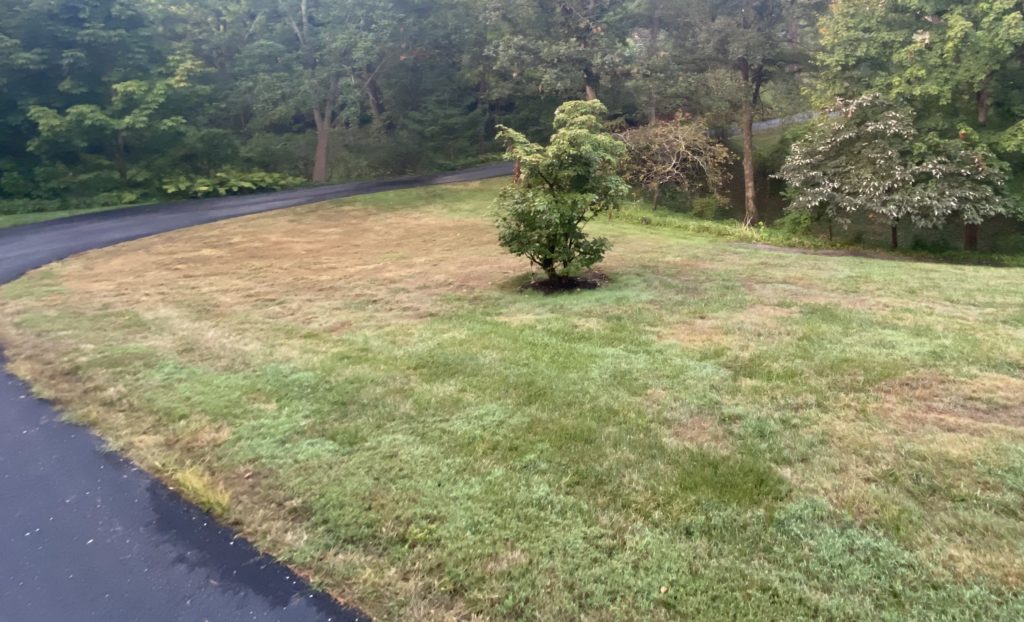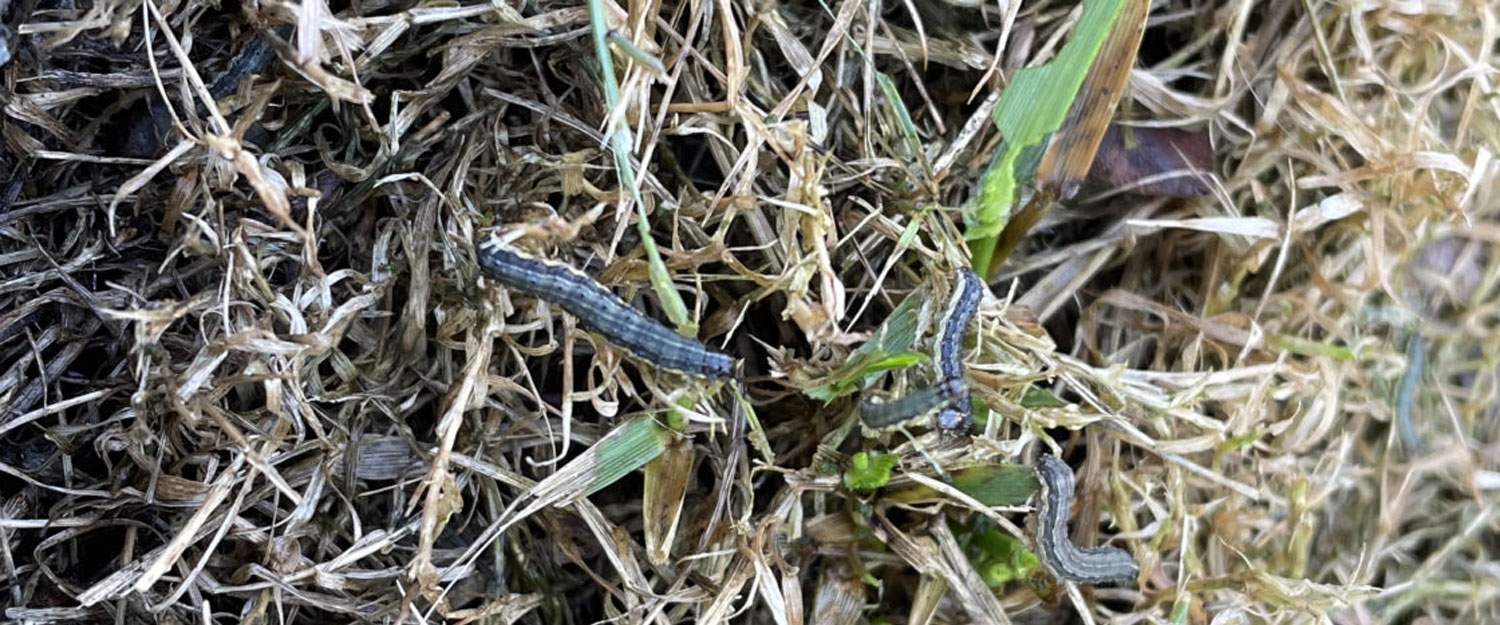Army Worms in Cincinnati
The Army Worm is a pest rarely before experienced in the Greater Cincinnati area, or even the State of Ohio. A moth larvae that relies on warm night time temperatures to hatch and grow, the Army Worm or Spodoptera frugiperda has arrived and is currently running rampant in Cincinnati area lawns. The first sighting, pictured above, was photographed in the Hyde Park area last week (Wednesday August 18th, 2021). Our technicians have also reported and begun to treat Army Worms in Mount Lookout, Oakley, Kenwood, Blue Ash, Indian Hill, Terrace Park, Wyoming, Mason and Anderson.
Permanent Damage
Army Worms manage to destroy turfgrass in lawns at an extremely high rate of speed. 2000–3500 square feet of new damage in a 24-hour period is not unusual and visible damage overnight is common. The pace of damage, and the visible presence of Army Worms in larvae form makes them an easy pest to diagnose, but one that requires immediate action to treat. Cincinnati lawns comprise of cool season grass, primarily tall fescue. Unlike Southern Bermudagrass, tall fescue will not recover from Army Worms without seeding. This is why is it vitally important to report and treat Army Worms as soon as they are first sighted, before they destroy an entire lawn.
This Army Worm infestation was left un-treated and grew from a 3 inch brown patch to the condition shown in less than 5 days:

Treatment and Success
Army Worms can be safely and effectively eradicated with a curative insecticide. This treatment will immediately halt the progression of the Army Worms and prevent further damage and spread. The treatment should be applied professionally so that it is fully effective and guaranteed to stop the spread of damage.
Approximately 3 weeks after a curative insecticide has been applied the damaged areas will need to be assessed and seeded to bring your lawn back to full health. Seeding with turf type tall fescue grass seed is important to best match the existing grass. After seeding, a starter fertilizer should be applied to the whole lawn to promote root growth and assist the new seed with germination.
For Help and More Tips
Please reach out to us by visiting turfgrassexperts.com for more tips, free advice or to request help with your lawn. We service the greater Cincinnati area and offer regular lawn treatment programs, tree and shrub treatments and diagnosis and treatment of lawn diseases and pests like Army Worms.
